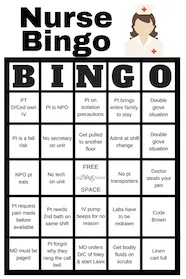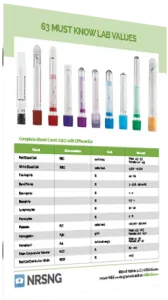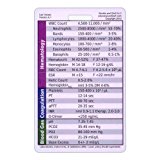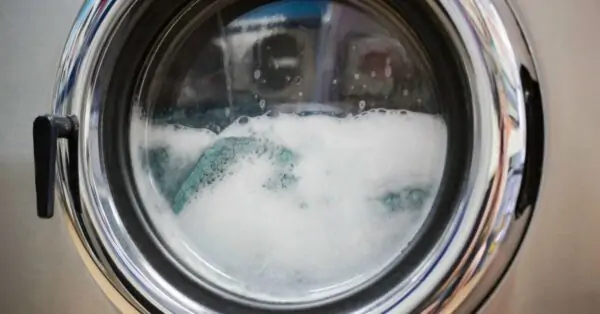When it comes to NCLEX, some things need to be memorized. And the laboratory values for nurses are certainly among them. Dreading memorizing lab values? Maybe you’re wondering why you should bother learning them in the first place. Either way, you’re not alone. Stop stressing over how to pass the NCLEX, and let’s look at this piece by piece.
Given NCLEX’s objective to test one’s analysis/application skill, it might be hard to figure out why the exam comprises of simple knowledge questions on laboratory values for nurses that you need to learn by heart. The underlying purpose of such questions is to see if you can distinguish nonstandard values and act on what you know. In essence, the NCLEX wants to determine if you can examine lab values, identify abnormal results, and most importantly do something to address the actual problem- or at least not aggravate it.
Here is a short compilation of some key lab values that, hopefully will make your NCLEX experience a little better.
Key Laboratory Values for Nurses
ABG Lab Values
- pH 7.35 – 7.45
- pCO2 35 – 45
- HCO3 22 – 26
Renal Lab Values
- BUN 5 – 20
- Creatinine 0.6 – 1.2
Cholesterol Lab Value
- Cholesterol <200
CBC Lab Values
- HCT F:36 – 46 M:42 – 52
- HgB F:12 – 15 M:14 – 17
- Platelets 200,000 – 450,000 <20,000 be very concerned!
- WBC 5,000 – 10,000
Electrolyte Lab Values
- Potassium 3.5 – 5
- Sodium 135 – 145
Glucose Lab Values
- Glucose 70 – 100
- HgBA1C 4 – 6% >7 is diabetic
Bleeding Time Lab Values
- PT 11 – 13
- PTT not on therapy 25 – 35 on therapy –> 2x normal
- INR on coumadin 2-3 w/o coumadin 0.8 – 1.2
How Should You Learn Lab Values?
[easy-tweet tweet=”With lab values, you need to know what you don’t know” url=”http://wp.me/p1mMzJ-3kF” user=”thenerdynurse” hashtags=”NCLEX”]
Now you know what values to learn first, how do you go about doing it? We got this covered. In the below section, we go over a few ways you can memorize lab values and recall them. It’s an approach that works well. Really well.
- Find out what’s important for you. Let’s face it. No matter how hard you try, it’s next to impossible to memorize every lab value that’s there to learn. Select which values you need to know. You might base your selection decisions on your skills, interests, and specialty. For example, if you work in an ICU, pay attention to the sepsis labs, ABGs etc. Once you learn these values by heart you are good to move ahead and learn others.
- It all comes down to the numbers in the normal range– So you’ve determined which lab values you need to know? That’s a good start. Now focus on memorizing the normal ranges for that lab value. Don’t bother thinking about the measurement unit at this point. Learn the normal ranges for each lab value and everything else will take care of itself. So what’s next after memorizing the normal ranges of each lab value?
- Learning lab values isn’t just a simple call-and-response or memory game. You need to know what you don’t know. That means you should understand the WHY and dig deep to really know what that value even meant.
- Finally, you need to think about it critically by doing some thoughtful analysis of the actual values. Yes. It’s time to analyze why a lab value is out of the range. What does it mean if a patient has a higher-than-normal level of HgBA1C in a diabetic patient?
Stick to these tips and study your lab values. You will no longer fell like you’re just memorizing some fuzzy numbers at random, but you’re actually taking a conscious effort to care for a patient at a deeper level.
The Best Lab Values Study Resource
Without a doubt, my favorite resources and reference guide for lab values is the Nursing.com Lab Values course.
It’s pack with information including:
- 7+ Hours of HD Video Content
- Lifetime Access
- Interactive Quizzes to Test How You’re Doing
- Case Studies to Learn From
- WorkSheets to Learn by Doing
- Cheat sheets to Always Have in Times of Need
- Hours of MP3 Files to Learn on the Go
If I had this while I was in nursing school, or shortly after graduation, it would have made a HUGE difference in my experience.
Pick yours up today and find out how to save 15% off with an exclusive promo code. While you’re at it consider signing up for Nursing.com Academy which gives you this course and a ton of of content for one low price!
Other Lab Values Resources
For other information on laboratory values for nurses and other resources be sure to check out:
“QUICK! Is This aPTT in Normal Range?” Can you answer this question off the top of your head? If not, be sure to get the 63 Must Know Lab Values sheet from Nursing.com.
Lab Values Vertical Badge ID Card Pocket Reference Guide
Get the laboratory values for nurses at your fingertips. This card gives you the common lab values including Hematology, Coagulation, Blood Gas, Chemistries, and Cardiac Values. This makes some of these hard to memorize values more accessible! This badge card comes from a series of cards that puts hard to memorize information at your fingertips. It has a standard slot pre-punched that will work with badge clips and badge reels.
Lab Values: 137 Values You Must Know to Easily Pass the NCLEX!
Get more in-depth on laboratory values for nurses with this book. 137 Values You Must Know to Easily Pass the NCLEX provides you with an inexpensive solution to focus on what lab values truly matter to ultimately pass the NCLEX.
Find out more great resources in our posts on How to Pass the NCLEX and sources for NCLEX Questions, and Anatomy Coloring Books.
Download Nurse Bingo Today!

Liven up any shift with a fun game of bingo. See who can fill a row first!
Fill a whole card and lose grip with reality.
Your privacy is protected. We will never spam you.










Great Info, Thank you!